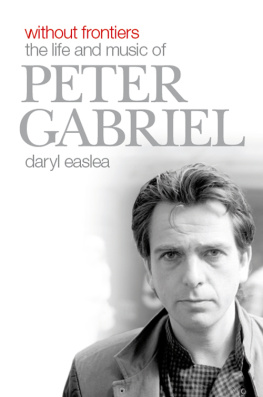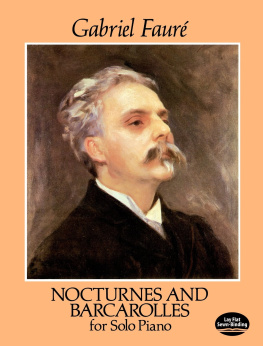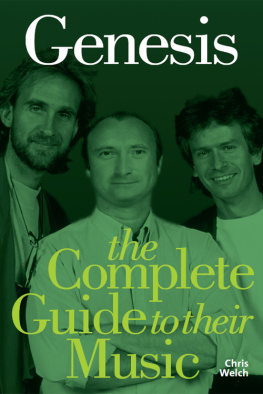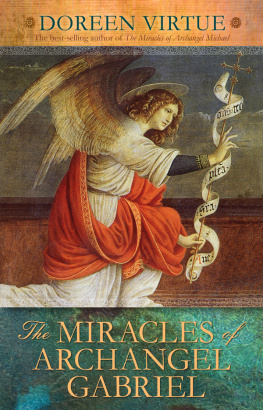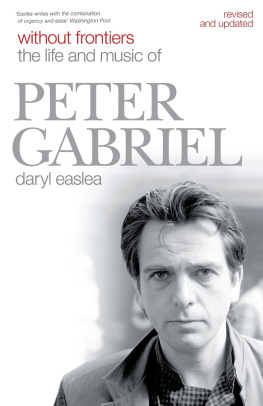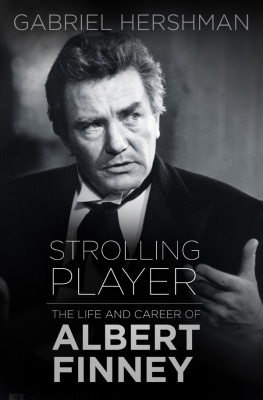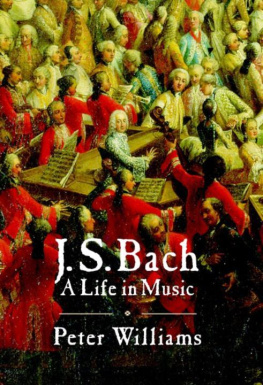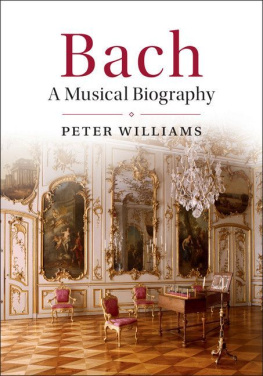Copyright 2013 Omnibus Press
This edition 2013 Omnibus Press
(A Division of Music Sales Limited, 14-15 Berners Street, London W1T 3LJ)
EISBN: 978-0-85712-860-7
Cover designed by Fresh Lemon
Picture research by Jacqui Black
The Author hereby asserts his / her right to be identified as the author of this work in accordance with Sections 77 to 78 of the Copyright, Designs and Patents Act 1988.
All rights reserved. No part of this book may be reproduced in any form or by any electronic or mechanical means, including information storage and retrieval systems, without permission in writing from the publisher, except by a reviewer who may quote brief passages.
Every effort has been made to trace the copyright holders of the photographs in this book, but one or two were unreachable. We would be grateful if the photographers concerned would contact us.
A catalogue record of this book is available from the British Library.
For all your musical needs including instruments, sheet music and accessories, visit www.musicroom.com
For on-demand sheet music straight to your home printer, visit www.sheetmusicdirect.com
To my darlings,
Jules and Flora Easlea.
Thank you for making my soul ignite
Prologue
A MAN WHO WOULD NEVER COMPROMISE HIS ART FOR ANYTHING
One of the things that turns me on is the sense youre on virgin snow
Peter Gabriel, 2007
Sometimes Im proud of my mistakes, if they are done with conviction
Peter Gabriel, Star Test, 1989.
O CTOBER 1982 . It is raining. Heavily. In the middle of England, six men are performing songs they had written over a decade previously, in order to salvage the dream of their former lead singer, who has rejoined the band for one night only. Contractually, they could not call themselves by their trading name, Genesis, and opted for the one-off soubriquet, Six Of The Best, an allusion to the fact that the group was founded at one of the UKs leading public schools, Charterhouse, renowned at the time for its use of corporal punishment. Only the Greek-style triangulated font used for their name on the programme, a font that first appeared as their logo on their 1974 album, The Lamb Lies Down On Broadway, gives a clue to these mens past.
The groups singer, Peter Gabriel, had left them seven years earlier moderately amicably and, to the wider world, surprisingly. As he had been their focal point, main spokesman and one of the principal writers between 1967 and 1975, few would have thought that the group could carry on without him. But, opting not to replace him, they had done so, and as a result were commercially far more successful after his departure than anyone would have ever imagined.
Gabriels career since leaving the group had been anything but linear. He had pursued his art over commercialism, and had gained a new realm of admirers in the process. By this point he had recorded a mainstream rock album with the cream of US session players, an album partially recorded in New York that reflected the city in the era of new wave and disco, and most importantly, an album that would set the template sonically for his future work. This record also contained Biko, the track that would prove more meaningful for his career than anything he had recorded before, or since. Written about Steve Bantu Biko, the South African student leader who died in police custody in Pretoria in September 1977, it was overtly political and arranged with African drumming and the low-drone of bagpipes, an anthemic record that had the remarkable ability to stir the political conscience of its audience, and later, be instrumental in challenging apartheid. Gabriel was to call the track a calling card announcing I was interested and prepared to get involved.
But now, Gabriel was suddenly in dire fiscal trouble. Never having been the most buoyant financially, Gabriel, in the words of Genesis drummer and later vocalist, Phil Collins, was a great um-mer and ah-her, content to follow his dreams first and worry about logistics later. He had pioneered a music festival that would bring together all of the musics from around the world in which he had a burgeoning interest. Accordingly, he put together an umbrella organisation, WO MAD (World Of Music, Arts and Dance), a vision borne out of his altruism and sincerity. At the same time, he was recording his fourth album, in his home studio in Ashcombe House, Bath, the first of his works that fully incorporated found sounds.
With his pioneering spirit, and a desire to work outside convention, Gabriel, with incredible zeal and vigour, had aligned himself with like-minded souls instead of tried music industry operators in order to stage a festival celebrating this music. As a consequence, the project lost money hand over fist. With debts estimated in the region of 250,000 (around 600,000 in 2013) it appeared that he and the fledgling organisation would be declared bankrupt. Indeed, the inaugural festival, held at Shepton Mallet in July 1982, was the epitome of a dream over financial reality, with audience numbers low and international travel bills sky high.
Aghast at the news that their old friend was in a parlous predicament and facing death threats from irate creditors, Genesis, and their manager Tony Smith, stepped in and offered something they knew would make big money a benefit concert that saw the group back together onstage with their former lead singer.
Gabriel was overwhelmed with their generosity, yet was also acutely aware that for someone who only wished to look forward, it would be a hugely regressive step. However, there was little option but to take the lifeline offered to him by his old group. Six Of The Best offered the jolt in the arm that Gabriel needed. In the sodden atmosphere of the largely soulless Milton Keynes Bowl, 65,000 people joined the group for a great big roaring school reunion, with all the old boys playing to their strengths. They were introduced by their original mentor and ex-Carthusian Jonathan King, and for the encores, their guitarist, Steve Hackett, who had left the band himself in 1977, joined them onstage. To emphasise the irony of the night, Gabriel was brought onstage in a coffin.
Six Of The Best cleared the WOMAD debt, and ultimately set the organisation on the road to becoming one of the worlds foremost boutique festivals. Within four years, Gabriel released an album entitled So that was a worldwide success, which meant that he would no longer need to rely on lifelines. By the end of the decade, based on the revenues of So, he had set up his own studio and label, Real World. With backing from Virgin Records, Real World would properly showcase his global appetite for new musics.
But the effects of the early Eighties would have a far greater impact on Peter Gabriels future. His championing of world music and his receptiveness to new ideas meant that he no longer saw himself as a mere artist. His work would take on increasing political significance, leading ultimately to his establishing the Elders, an organisation of the worlds most respected political figureheads, as a sort of think-tank to solve the worlds big issues. He was awarded the Man Of Peace Award by the World Summit of Nobel Peace Laureates in Rome, recognising personalities from the world of culture and entertainment who have stood up for human rights and for the spread of the principles of peace and solidarity in the world, and made an outstanding contribution to international social justice. Few pop singers have achieved this with such stealthy, unassuming gravity as Peter Gabriel.

